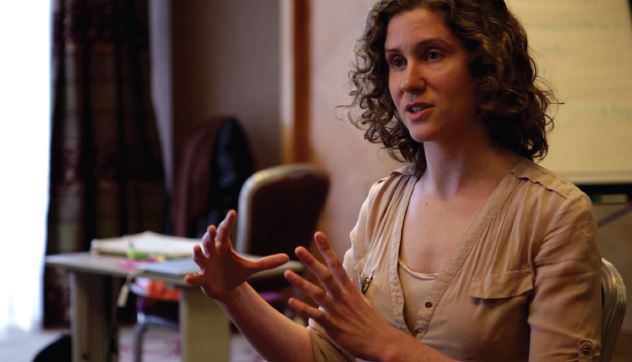Jessamyn Fairfield - 2015 SPIE Women in Optics Planner
Postdoctoral Research Fellow, School of Chemistry, Trinity College Dublin, Ireland
Country of Birth: USA
Educational Background: PhD University of Pennsylvania, MS University of Pennsylvania, BA University of California Berkeley

I make electrical and optical devices out of nanomaterials. So I spend part of my time actually creating the devices, combining nanomaterials and metals to define nanowire networks that I can electrically test, and then I can apply a voltage or a light source or other stimuli to explore the behavior of the device. I also collaborate with other people who may have facilities or expertise that I don't, and it's important for me to be able to communicate the science I do clearly in these collaborations.
For me the biggest obstacles have always been times when I felt like I was getting nowhere, when experiments weren't working or it wasn't clear to me how to get to the next stage of my career (grad school, post doc, etc.). I always try to break those problems down into manageable steps I can try. When the big picture is scary, focus on the little picture! And then when you get the small stuff working, you can go back to thinking big.
I wish I'd been told earlier that in science, it's okay if you try things that don't work! The scientific method of developing a hypothesis and then trying to prove it can mean that you explore lots of avenues that end up being wrong. But figuring out something that no one has ever known before isn't an easy process, and it's okay to fail, a lot of the time! The best scientists are the ones who don't take that personally, and are resilient and persistent.
Seek out a mentor! If you love science or engineering, that's fantastic, so try to find someone who has pursued a career similar to what you're interested in, and talk to them about what it's like. Having a supportive voice in your field and a source of guidance is extremely valuable.